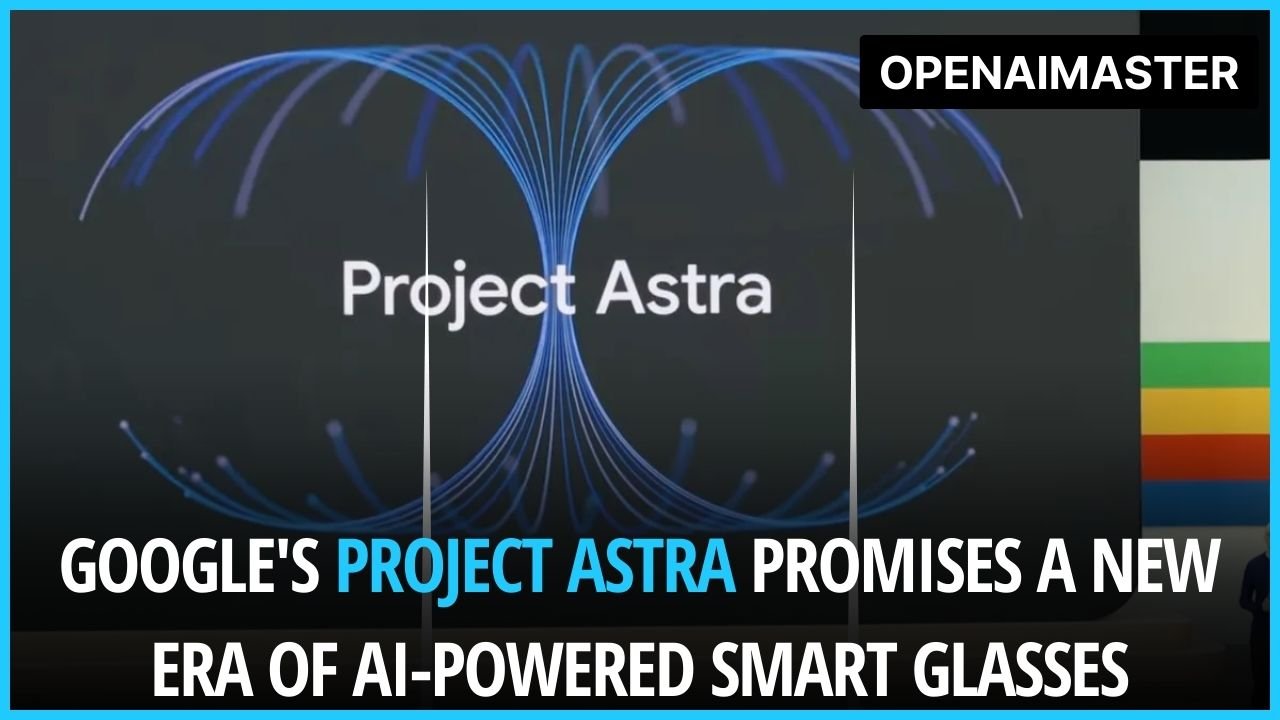At the recent Google I/O 2024 event, the tech giant unveiled a remarkable array of artificial intelligence (AI) models and tools, showcasing their continuous efforts to push the boundaries of technology. However, one particular project stood out from the rest, capturing the imagination of attendees and tech enthusiasts alike – Project Astra, an advanced AI assistant developed by Google DeepMind.
Project Astra: A Groundbreaking AI Assistant
Project Astra represents a significant leap beyond current chatbots and virtual assistants, capable of performing highly sophisticated tasks through real-time, computer vision-based interaction. Demis Hassabis, the co-founder and CEO of Google DeepMind, introduced Project Astra as an example of Google’s strategy to employ its largest and most powerful AI models to train production-ready versions. In his words, “Today, we have some exciting new progress to share about the future of AI assistants that we are calling Project Astra. For a long time, we wanted to build a universal AI agent that can be truly helpful in everyday life.”
During the demonstration, Google’s prototype AI assistant showcased its impressive capabilities by responding to voice commands while analyzing visual input from a phone camera and smart glasses. It accurately identified sequences of code, suggested enhancements to electrical circuit diagrams, recognized the King’s Cross area of London through the camera lens, and even reminded the user where they had placed their glasses.
Smart Glasses: The Killer Feature We’ve Been Waiting For
While the Project Astra demo itself was undoubtedly impressive, the true potential of this technology lies in its potential integration with the next generation of smart glasses. Google Glass, introduced back in 2013, was ahead of its time, but the technology at that point was not advanced enough to make smart glasses truly useful. With Project Astra, however, smart glasses could finally have their “iPhone moment.”
Imagine wearing lightweight, smart glasses equipped with a camera and microphone, allowing Project Astra’s AI assistant to see and hear the world around you. This setup could be a game-changer, enabling you to interact with your virtual assistant through voice commands, freeing you from the constant need to check your smartphone.
A New Era of Personal Computing
The possibilities of this technology are vast and exciting. Envision a future where your smart glasses feature a heads-up display (HUD) that shows you messages, appointments, Google search results, the currently playing song, and other text-based information. This could revolutionize the way we interact with technology, potentially marking a new era of personal computing.
Instead of constantly reaching for your smartphone, you could simply issue voice commands to your AI assistant, controlling all your phone apps hands-free. Need to change a song on Spotify? Ask your assistant. Want to check the weather forecast or the working hours of a nearby restaurant? Your AI assistant has got you covered. This seamless integration could truly free us from our phones, allowing them to remain in our pockets while our smart glasses become the primary interface for personal computing.
A Multimodal Foundation for App Control
To achieve this level of integration, Google will likely need to create a new kind of multimodal foundation model – an AI model that can understand both voice and typed commands, and use those commands to control your phone apps on your behalf. This model could reside on your phone, communicating with the main Gemini AI assistant (the successor to the current AI chatbot) and executing commands based on your voice or typed input.
By having the app-controlling subroutine operate locally on your phone, rather than relying on cloud computing, privacy concerns could be addressed, as sensitive data would not need to be transmitted over the internet.
The Future of Personal Computing: From Smartphones to Smart Glasses
As this technology advances, we could envision a future where our smartphones transform into “computing stations,” powering our smart glasses behind the scenes. The glasses would become the primary interface, allowing us to watch videos, scroll through social media feeds, take photos and videos, and never have to take our phones out of our pockets.
This shift could represent a true shakeup in the world of personal computing, where smartphones have become commoditized, and smart glasses equipped with advanced AI assistants become the new standard.
Addressing Privacy Concerns
Of course, with any technology that involves cameras and constant recording, privacy concerns are inevitable. Google should take a proactive approach and equip these future smart glasses with robust privacy features.
For example, the glasses could feature a visual indicator, such as a light on the frame, to signal when photos, videos, or audio recordings are being captured. Additionally, the AI assistant could be programmed to disable certain features, like the HUD, while driving, to ensure user safety and prevent distraction.
Furthermore, companies may choose to restrict the use of smart glasses on their premises to prevent industrial espionage or unauthorized recording. In such cases, the glasses could be designed to automatically disable recording capabilities when entering designated areas.
The Path Forward
While Project Astra is still in its early stages, and Google and DeepMind face numerous challenges – including addressing issues like hallucinations and ensuring the reliability of the foundational AI model – the potential for this technology is undeniable. If successful, we could be looking at a future where everyone is bespectacled, wearing smart glasses that serve as their personal AI assistants, freeing them from the constant need to check their smartphones.
As with any transformative technology, there will be ethical considerations and privacy concerns to address. However, if executed thoughtfully and responsibly, Project Astra could usher in a new era of personal computing, reshaping the way we interact with technology and potentially changing the very fabric of our daily lives.

